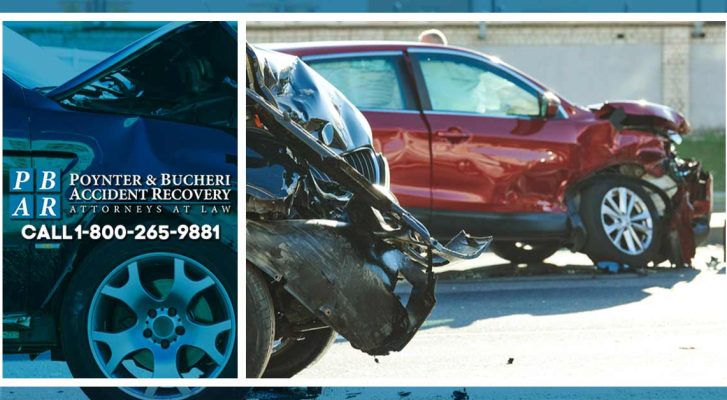
What Is Fair Market Value of a Car or Truck in Indiana?

After an Indiana car accident, most people tend to worry about their injuries and well-being, as they should. Seeking emergency medical attention is crucial after an accident to ensure your health is taken care of and to ensure you get adequately compensated for your medical expenses.
However, something accident victims tend to overlook is their vehicle damage. After an accident, you are entitled to compensation to help you pay for property damage, including car damage. And while insurance companies are required to compensate you based on the fair market value of your vehicle, they do not always do so.
As such, you must understand how this process works and how to correctly calculate fair market value to ensure you are awarded the amount you need to cover vehicle repairs or to compensate you for a totaled vehicle. We will ensure you sell your vehicle for a fair price.
What Is the Fair Market Value of a Car?
Fair market value (FMV) refers to the price that a car would sell for on the open market. It’s a reasonable estimate of what price a willing buyer and willing seller would agree upon in a transaction, assuming both parties have adequate information and neither is under any undue pressure to complete the transaction or sale.
For tax purposes, such as those overseen by the Internal Revenue Service (IRS), a form of the FMV is used to determine the value of an asset like a used car, your property, or truck at the time of the transaction or damage.
Why Fair Market Value Matters
Understanding the fair market price is important for several reasons:
- Selling Your Car: When you decide to sell one of your cars, knowing its FMV helps you set a competitive yet fair price to be paid. This ensures you attract potential buyers quickly while maximizing your returns.
- Buying a Car: As a buyer at a car dealer, knowing the FMV helps you determine if the price you’re paying is reasonable. This can prevent you from overpaying.
- Taxes: The Internal Revenue Service uses fair market value to assess the amount of taxes needed for a vehicle you are going to sell. This is particularly relevant if you’re donating a car, receiving one as a gift, or dealing with it as an asset in an estate.
How to Calculate Fair Market Value
When you file a claim after an accident, insurance companies will send someone out to evaluate the condition of your vehicle. However, while they are supposed to pay fair market value, it is not uncommon for them to offer reduced payouts, especially if they don’t think you know your car’s value or if they think you won’t hire an attorney to help you fight for a fair payout.
When an adjuster evaluates your car, they will look at:

- The condition your car was in before the accident, such as pre-existing damage
- The condition your car is in currently to determine the cost of repairs or the cost to replace the car if it is a total loss
- The age of your used car
- The car history report
- Make and model
- Mileage of the used car
- The price of comparable vehicles
However, though the insurance company will do its own work to determine fair market value, you must also do some research to ensure you are genuinely getting a fair payout. If you simply agree to the insurance company’s initial offer, you could be agreeing to less than your car is actually worth.
What Is The Most Reliable Method for Calculating Fair Market Value?
Several reliable methods exist to calculate the prices and assess the fair market value of selling a vehicle after an accident:
- Professional Appraisers: Hiring a professional appraiser provides a detailed and accurate assessment of the car’s value before the transaction.
- Kelley Blue Book: Using resources like the Blue Book allows consumers to look up average market values based on the car’s make, model, year, mileage, and condition.
- Dealer Price Quotes: Obtaining quotes from car dealers can offer insights into the vehicle’s trade-in value and help gauge its fair market value.
- Online Marketplaces: Researching similar cars on online auto sale platforms provides a comparative view of what similar vehicles are being sold for from the dealer.
Example of Calculating Fair Market Value

For example, if you were to determine the average FMV of a 2018 Honda Civic with 50,000 miles that was involved in an accident, you would:
- Check the Blue Book for the current fair market value.
- Compare prices of similar vehicles on used car or auto websites.
- Get quotes from several dealerships.
- Possibly hire a professional appraiser for a detailed evaluation.
Combining these methods provides a comprehensive view of assets, ensuring that the market value of assets and prices derived is fair, honest and accurate.
Minimizing Time and Maximizing Value
When selling an asset such a car, knowing its fair market value can help you sell it in less time. Pricing it right from the start attracts more potential buyers, reducing the time it spends on the market. This not only saves you time but also helps in securing a fair price without prolonged negotiations.
Determining Fair Market
In an open market, there are many used cars that are on sale. Doing research to figure out the right price for your car is key during the wholesale and buyer process.
To determine fair market value yourself, you should:
- Obtain your vehicle’s full history report, which means everything that has ever happened to or been done to your car, such as previous damage and repairs, as well as any upgrades that were made.
- Check online car value estimators, such as Kelley Blue Book.
- Call around and ask dealers for price estimates.
- Gather your own list of comparable car prices.
Once you obtain as much info as possible about your car and its potential fair market value, make sure you compare it to the insurance company’s report and estimate.
Considering Car Sales and Trade-In Values
When assessing the fair market value, looking at recent car sales and trade-in values can provide a realistic picture for your purchase. Car data from dealerships, private sellers, auto sales, and online marketplace platforms can help set a benchmark.
Trade values offered by dealers, although often lower than private party sales, still offer consumers a significant reference point.
The Role of Insurance Companies for Determining Fair Market Value
Companies and dealers often determine the fair market value of an asset or a car by considering factors like original cost, and depreciation. They may use their internal resources or hire third-party appraisers to get an accurate estimate.
It’s essential for car owners to do their own research and be prepared to negotiate the price if they feel the other dealer, dealership or insurance dealer or company’s offer is lower than the asset’s actual fair market value.
How to Negotiate with Insurance Companies on a Fair Price Your Automobile After an Accident
Once you have done your research about your vehicle sales and market value, you should send this documentation to your company so they can use it to determine the fair market value of the car. If you feel you are still being offered a payout that is less than fair market value, you will need the help of an attorney to handle negotiations while you sell your car.
A professional lawyer will know what it takes to deal with difficult companies and dealers to ensure they pay you the price you deserve for your property and assets. In some cases, you may need to have an appraisal done to further prove how much your automobile is worth. And it may also be possible to file a lawsuit if it is another party’s insurance handling the claim.
Why You Need a Lawyer
Fair market value (FMV) of a car refers to the price that a vehicle would sell for on the open market, given its current condition, mileage, age, and other relevant factors. This value is crucial in the context of car accidents, as it helps identify the compensation amount for damages or total loss.
An accident lawyer utilizes the FMV to negotiate fair settlements with companies or in court, ensuring that their client receives appropriate reimbursement for their vehicle. Understanding the FMV allows the lawyer to advocate effectively for the client’s financial recovery, covering the costs of repair or replacement based on the car’s pre-accident value.
Consult With an Indianapolis Car Accident Attorney
The fair market value of a car is an essential concept that impacts various aspects of paying, selling, and taxes.
By understanding how to determine and use this value, you can make informed decisions that ensure you get the best price in any transaction and pay the right amount of taxes. Always account for the asset’s fair market value to ensure all parties involved are getting a fair deal, keeping the transaction smooth and straightforward.
Calculating the fair market value of a car after an accident in Indiana involves thorough research and consideration of various factors. Utilizing professional appraisers, any private seller, online resources, and dealership and dealer quotes can lead to an accurate open market amount estimate, ensuring that you receive a fair price whether dealing with claims, tax purposes, or selling the vehicle.
At Poynter and Bucheri Accident Recovery, we know how devastating it can be to lose your car to an accident or to have to pay high prices for repairs. You deserve to be awarded the full and fair market value for your car or truck so you can cover repair costs or buy a replacement vehicle. We will help you get a fair price and assess your car’s value.
You can expect us to calculate the fair market value and negotiate with insurers, so you can rest easy knowing your case is in good hands. Don’t hesitate — an experienced Indiana car accident attorney can assist you right away.
Call Poynter & Bucheri Law Firm at 1-800-265-9881 for a free case review because you matter to us.
